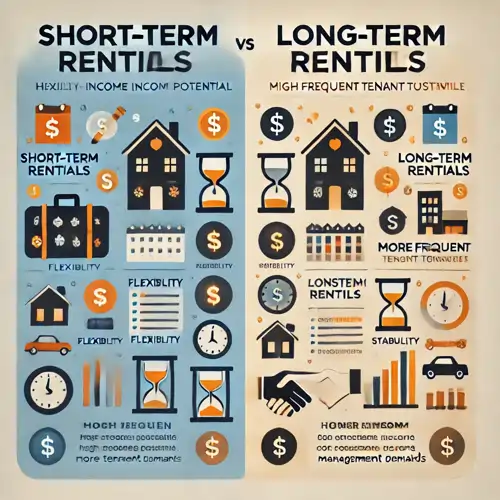Introduction
Choosing between vacation rental and long-term rental is a key decision for property owners. Each option has its own advantages and disadvantages, which are important to consider to maximize income and minimize risks.
Advantages and Disadvantages of Vacation Rental
Advantages
- Flexibility. The ability to adjust conditions and prices based on demand.
- Higher income. Vacation rentals can generate more income in a shorter period, especially during peak seasons.
- Personal use. Owners can use the property during periods when it is not rented out.
Disadvantages
- High time costs. Managing bookings, cleaning, and maintenance is required.
- Property wear and tear. Constant tenant turnover accelerates wear and tear.
- Legal restrictions. Many cities require licenses and compliance with strict regulations.
Advantages and Disadvantages of Long-Term Rental
Advantages
- Stable income. Long-term contracts guarantee predictable earnings.
- Less hassle. Frequent tenant changes and cleaning are not required.
- Property preservation. Long-term tenants are more likely to maintain the property in good condition.
Disadvantages
- Limited flexibility. It is not possible to quickly raise rent or use the property.
- Lower income. In the short term, earnings are lower than vacation rentals.
- Risk of non-payment. To mitigate this, it is recommended to secure rental non-payment insurance.
How to Choose the Best Option?
The decision depends on your goals and circumstances:
- If you seek flexibility and maximum income, opt for vacation rental.
- If you value stability and minimal effort, prefer long-term rental.
Conclusion
Both vacation and long-term rentals have their unique characteristics, and the choice depends on your preferences and strategy. Analyze the market, evaluate your resources, and choose the option that offers the greatest profitability.








